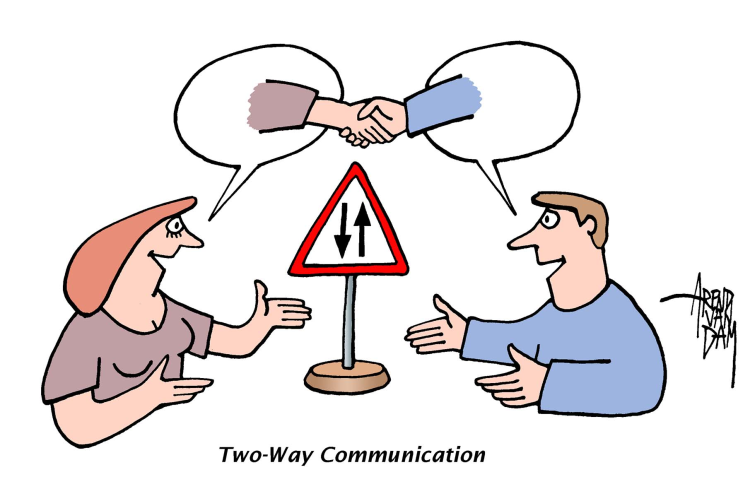Salary Negotiation Tips
We all know that discussing and negotiating salary can be a nerve-wracking experience, but it’s a crucial skill to master in our professional journeys.
We all know that discussing and negotiating salary can feel like stepping into a minefield. It’s nerve-wracking, it’s uncomfortable, and let’s face it, can feel a little awkward too. But, guess what? It’s an integral part of our professional journey that we need to master. Given its importance, I have compiled a list of practical salary negotiation tips that can take away some of the stress, help you assert your worth, and get you the pay that reflects your true value. Buckle up as we navigate through the world of salary negotiations together.

1. Value First Concept
Iulian Chiriac is a devoted follower of this idea.
Here are his comments on this subject:
I am still very much an adept of “value first”.
I have seen many people that are looking to gain from their employment in rather strange way. They usually jump around, no focus, and very little value. And to top it off, high ego and salary expectations.
To put it simply:
– make sure you find a good environment where employees are valued
– next, make sure you deliver value with a bit of passion, excitement and efficiency. Try to figure out what problem you can solve for others, that you might not have been asked to do even. BE very careful to finish the assigned tasks first and meet expectations.
– very soon, in an environment that actually values driven people, people will notice you and the problems you solve for them.
– if you think you should receive a higher compensation, go and have a discussion about it. If they care, they will talk. If not, that is not a good place to be in for you.
– and of course, learn how to show your value during the discussion. Just showing up and saying “I want a raise” without putting in a little effort to do market research, understand and have argument why you are saving the company money, is poor taste.
In essence, Iulian Chiriac advocates for a “value first” approach in salary negotiations. This perspective emphasizes the importance of delivering value to your employer through passion, efficiency, and problem-solving before discussing higher compensation. It underscores finding a conducive work environment where employees are valued, and one’s contributions are recognized. If such recognition is not found after demonstrating added value, then Iulian Chiriac suggests that it might not be the right workplace for you.
Benefits of the Value First Concept
The “Value First” concept carries numerous benefits for both professionals and organizations alike. For professionals, it facilitates personal growth and development. As you strive to add value, you will inevitably sharpen your skills, expand your knowledge, and gain a broader understanding of your industry and role. Moreover, when you focus on delivering value, it enhances your sense of self-worth and job satisfaction. It’s no secret that feeling valued at work boosts motivation and productivity.
For organizations, employees who adopt the “Value First” mindset contribute significantly to the firm’s success. They tend to be more engaged, motivated, and productive, driving better business outcomes. They are proactive problem solvers, often taking the initiative to address issues and introduce improvements, which can lead to increased efficiency and profitability.
In the context of salary negotiations, the “Value First” concept allows you to demonstrate your worth effectively. By bringing attention to the value you’ve added, you build a compelling case for a salary increase, making the negotiation process smoother and more likely to yield positive results. Therefore, embracing the “Value First” approach is a win-win strategy for both the individual and the organization.

2. Come Prepared
This belief finds a strong advocate in Anastasia Rovenco .
Here is what she is saying on this subject:
When asking for a promotion, come prepared. You have to be confident about the raise you want to ask for. And you have to be able to prove you’re worth it – it can be your accomplishments, new duties, certifications, inflation, etc. (depending on the use case and your employer’s policy).
Anastasia Rovenco, like Iulian Chiriac, is a firm believer in the power of preparation when it comes to salary negotiations. This involves conducting thorough research about industry salary norms, the specific company’s compensation structure, as well as your personal value proposition. Armed with this knowledge, you can confidently and effectively negotiate your salary. By being well-prepared, you convey your seriousness and professionalism, thus enhancing your credibility during the negotiation process.
Anastasia Rovenco has to say on the subject: “The importance of preparation cannot be overstated. The more prepared you are, the more confident and persuasive you will be during the negotiation.”
Benefits of Being Prepared
Preparation before any salary negotiation arms you with critical information, such as your market value, the company’s budget, and potential counter-offers, providing a significant advantage during the discussion. It allows you to present thoroughly researched data, strengthen your arguments, and gives you the confidence to stand your ground if necessary.
Moreover, being prepared indicates your seriousness about the role and your commitment to the organization, which can positively influence the outcome of the negotiation. It allows you to anticipate objections and have ready responses, reducing the chances of being caught off guard.
In essence, preparation empowers you during salary negotiations. It boosts your confidence, strengthens your case, and increases the likelihood of achieving a favorable outcome. Hence, never underestimate the power of being fully prepared before heading into a salary negotiation.

3. Share steps for a raise
Some of us may be addicted to this approach.
If you approach the topic of a raise by asking, “Could you provide me with a road-map or a list of actions I could take to contribute more to the company and thereby secure a higher paycheck?” This approach has the potential to rapidly shift perceptions and lead to a multidimensional discussion. It’s possible that you’re already making substantial contributions, and this approach acknowledges that. However, the straightforward query does have its merits and drawbacks.
The approach of sharing steps or a roadmap toward a raise is a proactive and structured method, which carries significant advantages for both employees and employers.
For employees, this approach provides a clear and tangible pathway to increase their earnings. It allows them to understand the expectations and objectives they need to meet or exceed to be considered for a pay increase. This transparency reduces any ambiguity or stress related to salary increments and promotes a more engaged and motivated work environment.
For employers, it encourages employees to consistently strive for excellence, knowing that their efforts and achievements will be rewarded. This can lead to enhanced productivity, improved quality of work, and a more innovative and dynamic workplace.
Furthermore, this strategy can significantly improve the salary negotiation process. With a predefined roadmap, the focus shifts from subjective assessments to more objective, performance-based discussions. This can make the process more efficient, amicable, and fair, leading to improved employee satisfaction and retention rates.
Therefore, while the roadmap approach to salary negotiation offers several advantages, it is not without potential drawbacks. For employees, this method could introduce the risk of feeling overlooked if they’re already performing at a high level but their salary does not reflect their contributions. Additionally, an overly rigid or structured roadmap might not account for unforeseen circumstances or exceptional initiatives taken by the employee, limiting their potential for a salary increase. For employers, this approach could inadvertently create a transactional culture where employees are motivated primarily by financial rewards rather than a genuine passion for their work, potentially affecting overall job satisfaction and employee retention. It’s crucial, therefore, to balance the implementation of a raise roadmap with a holistic view of employee motivation and performance.

4. Salary negotiation is a two-way conversation
This concept has a committed follower in Alexandru Furtuna.
Here are more details about how he describes this concept:
This is still a taboo topic to discuss about.
It’s like a secret but shouldn’t be. Instead, we have to discuss it openly and everyone should be prepared for discussion, but wait!
Everyone should be not only prepared to request a higher salary but also:
- Building self-confidence by delivering value
- Research the market
- Being helpful and of assistance to the entire community they work in.
- Make sure you are helping the entire company by sharing your experience with others.
- Be consistent in your work, eat the frog first then relax.
- Discipline is the best. Build it, and don’t forget to maintain it.
🤝 Remember that salary negotiation is a two-way conversation. It’s not just about what you can do for the company, but also about what the company can offer you in terms of compensation and benefits.
The benefits of a two-way conversation during salary negotiations are manifold, for both the employee and the employer. For the employee, this approach ensures their voice is heard, their contributions are acknowledged, and their professional needs are considered. They’re able to articulate their expectations, ask relevant questions, and negotiate terms that align with their career goals and lifestyle needs.
For the employer, a two-way conversation offers valuable insights into the employee’s motivations, aspirations, and concerns. This provides the opportunity to address these aspects effectively and foster an environment where the employee feels valued and understood, boosting their morale, productivity, and loyalty. Additionally, this dialogue can lead to more balanced compensation strategies that reflect both the company’s financial capabilities and the employee’s value, promoting fairness and transparency across the organization. In essence, a two-way conversation transforms salary negotiation from a potential point of contention into a collaborative, constructive process beneficial to both parties involved.

5. Let the market dictate your value
Research the salaries offered in the market for similar positions. Objective data will help you substantiate your requests.
Conducting a comprehensive market analysis is a pivotal step in salary negotiation. It empowers you with knowledge about the average pay for similar roles within your industry and geographic location. This information provides a benchmark against which you can compare your current or proposed salary, allowing you to determine if it’s competitive and fair. Furthermore, understanding the market rate can strengthen your negotiation position and give you the confidence to ask for a pay that reflects your skills, experience, and the value you bring to the company. It helps you to avoid underpricing or overpricing yourself, thereby ensuring a balance that benefits both you and your employer.
Allowing the market to dictate your value is a strategic approach in salary negotiation. This essentially means understanding your worth within the current job market landscape, based on your skills, experience, and the industry standards. To do this effectively, it’s crucial to conduct a meticulous market analysis to grasp the average pay for similar roles in your field and region. This knowledge equips you to gauge if your current or proposed salary is competitive and equitable. It also enhances your negotiation power, enabling you to argue for a salary that accurately reflects your professional value. Hence, you avoid the pitfalls of underpricing or overpricing yourself, ensuring a balance beneficial to both you and your employer.
6. What recruiters won’t tell you about your salary
- Their first offer is never their best offer.
There is always going to be some wiggle room and if you cannot negotiate salary, try to negotiate some of these: signing bonus, early comp review, equity, remote work, start date, vacation days. - Recruiters calculate your offer based on the salary that you are currently making. If you are underpaid, do not tell them and let the market dictate your value.
- Recruiters are awesome but in the interview stage, it is the hiring manager who makes the last call.
7. How to help recruiters get you a higher salary
Recruiters want to pay you more money, but they need your help to convince hiring managers that you are worth it. The best way to prove to recruiters that you are worth the high end of their budget is if you have multiple competing offers from different companies. This is why the secret to getting paid is ABI, always be interviewing.
8. When to share your salary expectation
Do not make this mistake in your first-round interview!
The first round is always a phone screen with the interviewer, and they want to know two things.
- Can you do the job?
- Do I actually want to work with you?
Meaning they do not need to know about your salary. That especially applies to people who are underpaid right now. You can only share your salary and expectations at the later stage of the interview process.
Conclusion
Salary negotiations can often seem like a daunting process, but with the right preparation, strategy, and mindset, they can turn into an empowering experience. Remember, the key is to understand your value, research the market, and communicate effectively. And remember, it’s not just about the numbers, but also about the overall compensation package and your professional growth.
We hope these tips have given you some insight and tools to feel more confident when discussing your salary. But remember, everyone’s path is unique, and there’s always more to learn. We’d love to hear from you about your own experiences with salary negotiation. What strategies have worked for you? What challenges have you encountered, and how have you overcome them? Share your tips and tricks in the comments below. After all, we’re all on this professional journey together. Let’s learn from each other and empower one another to get the compensation we deserve.







